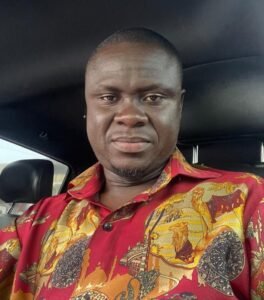
President Nana Addo Dankwa Akufo-Addo has called for global action to tackle climate change as it is connected to the peace, security and development that countries seek.
He indicated that even though the African Union has identified socio-economic difficulties, political and economic exclusion, mismanagement, drought, among others, as the main causes of instability on the continent, climate change could not be left out of the dangers to peace.
He made this known in a speech read for him by the Foreign and Regional Integration Minister, Shirley Ayorkor Botchwey, at the 984th virtual meeting of the Peace and Security Council at Heads of State and Government Level on Securing Sustainable Peace in Africa,.
The meeting focused on climate change and its effects on peace and security on the continent.
“It, therefore, comes as no surprise that climate change today is defined as a threat multiplier and equally as no coincidence that seven out of the 10 countries most vulnerable and least prepared to deal with climate change, host a peacekeeping operation or special political mission,” he said.
Paris Agreement
He recounted the call by UN Assistant Secretary-General for Europe, Central Asia and the Americas, Mr Miroslav Jenča, on peace and security actors to play their role and help speed up implementation of the landmark Paris Agreement on Climate Change.
“And that failure to consider the growing impacts of climate change could undermine global efforts at peace as well as risk trapping vulnerable countries into a vicious cycle of climate disaster and conflict,” he said.
The President stated that across sub-Saharan Africa, South Asia and Latin America, climate-driven population displacement, migration, water and food insecurity had and could continue to undermine regional stability.
He further called for stronger partnerships that would align ongoing efforts by the UN, member states, and regional organisations to identify best practices to strengthen resilience and bolster regional cooperation.
ECOWAS/Ghana
President Akufo-Addo again disclosed that at the sub regional level, ECOWAS, in line with the Decision of the ECOWAS Authority of Heads of State and Government, in 2015, enhanced the capacity of member states to better address the major risks ranging from security and terrorism, environment, crime and criminality, governance and health by setting up of National Early Warning and Response Mechanisms in each Member State.
“As of today, five centres in Burkina Faso, Cote D’Ivoire, Guinea Bissau, Mali and Liberia have been fully operationalized, whilst the remaining are at various levels of completion,” he said.
The President disclosed that Ghana, in 2013, developed a National Climate Change Policy to serve as a springboard for initiating a climate-resilient economy that would accelerate her development efforts and enhance the well-being of our people without sacrificing the quality of the environment and its resources.
This, he explained, affirmed Ghana’s resolve to lessen the potential hardships that climate change impacts may pose to the sustainable development of the country.
“The policy seeks to provide strategic directions and coordinate issues of climate change in Ghana, bearing in mind its linkages with our development, adding that what was relevant for Ghana was to ensure the mainstreaming of the climate-proofing agenda into national development,” he said.








